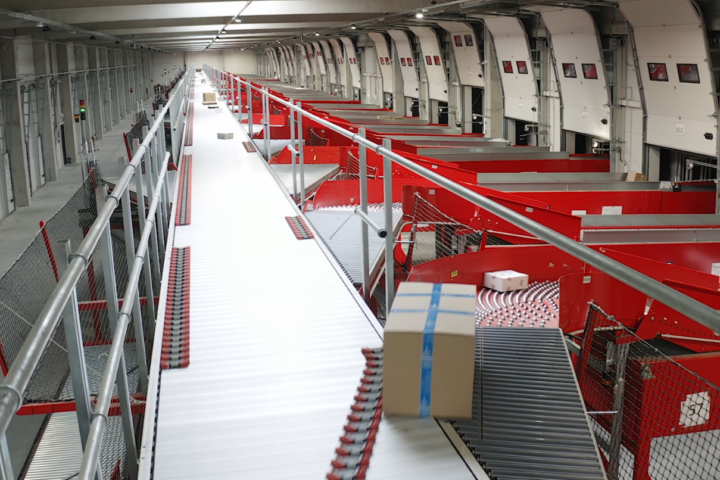Many trucking businesses face challenges in maintaining compliance with regulations, which can lead to hefty fines and operational disruptions. In this guide, you will learn how to strengthen your compliance practices through step-by-step strategies that protect your business and ensure the safety of your drivers. With clear procedures and a commitment to ethical practices, you can enhance your reputation and build trust with clients. Follow these instructions to streamline your processes and safeguard your company’s future.
Key Takeaways:
- Implement regular training programs for employees to ensure they are updated on compliance regulations and best practices in the trucking industry.
- Utilize technology such as fleet management software to streamline compliance tracking, reporting, and record-keeping to minimize risks and improve efficiency.
- Establish a thorough review process for compliance documentation, including audits and inspections, to identify areas for improvement and maintain adherence to industry standards.
Types of Compliance Practices
The world of trucking is governed by a myriad of compliance practices, each vital in maintaining order and efficiency in your operations. Understanding these compliance practices can help safeguard your business against potential legal issues and operational disruptions. Here’s a breakdown of the main types of compliance practices that every trucking business should adhere to:
| Compliance Practice | Description |
|---|---|
| Regulatory Compliance | Adhering to laws, regulations, and industry standards. |
| Safety Compliance | Implementing measures to protect your drivers and cargo. |
| Environmental Compliance | Following environmental laws to minimize your ecological impact. |
| Financial Compliance | Ensuring financial practices are congruent with legal requirements. |
| Insurance Compliance | Maintaining required insurance coverage and policies. |
After understanding these categories, you can better navigate the complexities that come with compliance in the trucking industry.
Regulatory Compliance
You must ensure that your trucking business adheres to a variety of federal and state regulations that govern the industry. This includes compliance with the Department of Transportation (DOT) rules, maintaining proper licensing, and ensuring all vehicles meet legal standards. Regular audits and keeping updated records will help you stay aligned with these requirements, thus avoiding fines and penalties that could derail your operations.
Regulatory compliance also involves understanding the specific regulations that apply to your state and the regions you operate in. You must familiarize yourself with specific guidelines related to vehicle maintenance, driver qualifications, and hours of service to prevent potential legal action against your business.
Safety Compliance
The safety of your drivers and cargo is a top priority in any successful trucking business. You should implement a robust safety compliance program that includes regular training for drivers, strict adherence to vehicle maintenance schedules, and safety equipment checks. Establishing policies for safe driving practices and promptly addressing any safety violations can create a culture of accountability within your team.
Moreover, maintaining a detailed record of safety compliance measures can protect your business against liability claims or lawsuits. By emphasizing safety compliance, you help ensure that your operations run smoothly, reducing the risk of accidents and enhancing your reputation with clients.
A comprehensive safety compliance plan can also improve your insurance premiums and provide a competitive edge within the market. Regular updates to your safety procedures based on new regulations can keep your business aligned with industry best practices.
Environmental Compliance
Some trucking businesses may overlook the importance of environmental compliance, yet it is becoming increasingly vital as regulations tighten. You should be conscious of your ecological footprint and work towards minimizing your impact through eco-friendly practices. This can include adopting fuel-efficient vehicles, implementing waste management protocols, and understanding emissions requirements.
This not only aids in protecting the environment but also enhances your brand image. Customers are increasingly inclined to partner with businesses that demonstrate environmental responsibility, potentially increasing your customer base and client loyalty.
Step-by-Step Guide to Enhance Compliance
Clearly, to elevate your trucking business’s compliance practices, it is crucial to have a structured approach. By following this step-by-step guide, you can systematically identify weaknesses, implement effective measures, and build a culture of adherence within your organization. Below, you will find key components that outline the process of enhancing compliance in your operations.
| 1. Assessing Current Practices | Evaluate existing compliance measures and identify gaps. |
| 2. Implementing New Procedures | Establish improved protocols and guidelines for your team. |
| 3. Training and Development | Provide ongoing training to ensure that all staff understands compliance requirements. |
Assessing Current Practices
Enhance your compliance efforts by first assessing your current practices. This assessment involves conducting a thorough audit of your existing compliance measures regarding regulations and safety standards. Collect data on your operational processes and evaluate how well they align with industry requirements. Identify both strengths that you can work with and gaps where improvements are necessary, preparing you for the next steps in establishing more robust compliance strategies.
In addition to gathering information from your records, engaging your employees in discussions can provide insights into compliance blind spots you may not be aware of. This collaborative approach ensures that you’re not only looking at compliance through a top-down lens but also understanding practical challenges faced on the ground. This collective feedback will empower you to create a baseline that informs your subsequent steps effectively.
Implementing New Procedures
If you have identified areas needing improvement, it’s time to explore implementing new procedures. This could involve developing a comprehensive compliance manual that outlines your updated protocols clearly for all team members. Making these procedures easily accessible and comprehensible increases the likelihood that your employees will follow them, ultimately reducing the risk of non-compliance.
Current technology can play a significant role in facilitating compliance. Consider leveraging digital tools for tracking compliance efforts, documenting procedures, and ensuring that updates are communicated effectively. With these tools, you can set reminders for compliance audits and maintain an organized system that keeps everyone on the same page. Investing in software solutions can streamline compliance-related tasks, freeing up resources to focus on other business opportunities.
Training and Development
Step-by-step implementation of new compliance procedures is pivotal, but it must be equally complemented by robust training and development initiatives. You should create training programs that are tailored to educate your team on the importance of compliance, the specifics of new processes, and their individual responsibilities under these new protocols. Regular refreshers can keep compliance at the forefront of your team’s consciousness, promoting a culture of accountability.
Compliance training should not merely be a one-off event but an ongoing process that adapts to changes in legislation, technology, and industry standards. Include interactive sessions, real-world case studies, and assessments in your training to maintain engagement and effectiveness. Continuous development opportunities not only enhance your team’s skills but also reinforce their importance in maintaining a compliant organization.
Tips for Improving Compliance Practices
Not all trucking businesses operate under the same compliance standards; however, enhancing your compliance practices can set you apart from competitors. Here are some effective tips to boost your efforts:
- Regularly engage in staff training sessions to promote understanding of regulatory requirements.
- Document all compliance activities to ensure you have a paper trail for audits.
- Invest in compliance management solutions to streamline processes.
- Establish a clear communication channel for addressing compliance-related concerns.
Perceiving compliance as an ongoing commitment can transform your trucking business into a model of reliability and accountability, thereby enhancing your organization’s reputation.
Regular Audits and Reviews
Now that you understand the importance of compliance, conducting regular audits and reviews is imperative for maintaining control over your operations. Schedule audits periodically to assess the adherence to both internal policies and external regulations in your trucking business. Keeping these audits transparent and thorough will illuminate areas where your practices can be improved and ensure you remain ahead of any potential issues.
Additionally, it’s vital to encourage a culture of accountability within your team. Fostering an environment where team members feel comfortable reporting discrepancies and suggesting improvements can significantly enhance your compliance landscape. Regularly review audit outcomes and involve your team in discussing ways to comply better and refine your processes.
Utilizing Technology
Even in an industry traditionally seen as manual and labor-intensive, technology offers numerous solutions that can redefine your compliance practices. Utilize software systems designed to monitor and log hours of service, vehicle inspections, and maintenance records. With these tools at your disposal, real-time tracking of compliance status becomes feasible, reducing human error and ensuring that you are always aligned with legal expectations.
For instance, adopting fleet management software simplifies the process of ensuring your vehicles are regularly serviced and compliant with safety regulations. GPS tracking functionalities allow you to monitor your drivers’ routes, enhancing not only compliance with regulations but also improving operational efficiency by preventing unauthorized detours or delays. By leveraging these technologies, not only do you protect your business from fines, but you also enhance the overall safety and efficiency of your operations.
Factors to Consider for Compliance
Keep in mind that there are several key factors you need to consider to enhance your trucking business’s compliance practices. These considerations can significantly impact your ability to operate smoothly and adhere to regulations. Here are some important aspects to think about:
- Business Size
- Fleet Composition
- Regulatory Landscape
- Training Needs
- Technology Utilization
Recognizing how these factors interrelate can help you develop a more streamlined approach to compliance, ensuring that your operations align with industry standards and regulations.
Business Size and Scale
Little do many operators know, the size and scale of your trucking business can greatly influence your compliance strategy. A smaller fleet may have fewer regulations to follow due to fewer units and less complex operations. However, as your business grows, the number of compliance requirements increases, encompassing additional regulations such as the FMCSA regulations, vehicle maintenance standards, and even driver qualification processes.
Your compliance practices should evolve alongside your business. Larger operations often require a more sophisticated approach to compliance, which may include dedicated compliance officers, enhanced training programs, and advanced tracking systems to manage the increased complexity of regulations effectively. Failing to adapt your compliance measures can result in penalties, operational disruptions, and potentially harm your reputation in the industry.
Industry Standards
With the trucking industry’s regulatory landscape constantly changing, understanding industry standards play a vital role in maintaining compliance. You must stay informed about the latest regulatory updates, including those related to safety protocols, environmental practices, and labor regulations. Engaging with industry associations and attending relevant seminars can provide insights into the ever-evolving compliance landscape.
Standards set forth by regulatory agencies, such as the Federal Motor Carrier Safety Administration (FMCSA), dictate much of your compliance need. To ensure driving compliance in line with these standards, you should focus on regular vehicle inspections, driver training programs, and adherence to hours-of-service regulations. Neglecting these critical areas can lead to catastrophic risks, such as severe accidents, hefty fines, and legal challenges, which could significantly jeopardize your operation. On the other hand, maintaining rigorous compliance fosters a positive company reputation, enhances operational efficiency, and helps you build long-term relationships with clients.
Pros and Cons of Enhanced Compliance
After considering enhancing your trucking business’s compliance practices, it’s important to weigh both the advantages and disadvantages carefully. This balance will help you make informed decisions that impact your operations and financial outcomes in the long run.
| Pros | Cons |
|---|---|
| Improved safety for your drivers and others on the road | Increased operational costs |
| Enhanced reputation with clients and stakeholders | Possible delays due to rigorous compliance checks |
| Reduced risk of legal issues and fines | Training and education may require additional time and resources |
| Streamlined operations leading to greater efficiency | Difficulty in adapting to new regulations |
| Access to more business opportunities | Potential for employee pushback against new policies |
Benefits to Business Operations
The enhancement of compliance practices in your trucking business can lead to several significant benefits for your overall operations. By prioritizing compliance, you increase the safety and well-being of your drivers and the public, which fosters a positive company culture and boosts morale. Additionally, clients often prefer businesses that maintain high compliance standards, which can enhance your reputation and lead to new opportunities.
Moreover, better compliance can lead to a reduction in legal issues and fines. By investing in robust compliance infrastructure, you cultivate a proactive approach to safety and regulations, thus minimizing disruption and allowing you to focus on core business operations. This position not only enhances your credibility but can also attract partnerships and contracts that demand stringent compliance measures.
Potential Challenges
To successfully enhance compliance in your trucking business, you must be prepared to face certain challenges. Initial implementation can lead to increased operational costs, as you may need to invest in training programs, resources, and technologies to ensure adherence to new regulations. Furthermore, as compliance checks become more rigorous, you might experience delays that could impact your delivery timelines.
With adherence comes the need for your team to adapt to new processes and policies, which can sometimes lead to friction among employees who might see these changes as burdensome. It’s vital that you communicate the benefits effectively to get your team on board. Balancing these challenges against the potential long-term benefits will require some effort, but ultimately, a well-structured compliance practice can lead to a more efficient and safer operation for your trucking business.
Final Words
Upon reflecting on the steps outlined to enhance your trucking business compliance practices, it becomes evident that a structured approach can significantly improve your operational efficiency and safety standards. By systematically evaluating your current compliance measures, incorporating regular training for your team, and staying informed about industry regulations, you can foster a proactive culture that prioritizes adherence to legal requirements. Keeping open communication with your drivers and staff encourages accountability, leading to smoother operations and reduced risks of penalties.
Additionally, utilizing technology and management tools can streamline your compliance processes, making it easier for you to monitor and document necessary protocols. Staying ahead of regulatory changes, as well as leveraging industry resources, will help you adapt quickly and effectively. By committing to these practices, your trucking business will not only meet compliance requirements but also build a reputation for reliability and professionalism, ultimately leading to greater success and growth in a competitive market.
FAQ
Q: What are the primary compliance regulations that trucking businesses must adhere to?
A: Trucking businesses must comply with various regulations, including the Federal Motor Carrier Safety Administration (FMCSA) rules, which pertain to driver qualifications, hours of service, vehicle maintenance, and safety standards. Additionally, businesses should consider state-specific regulations, environmental laws, and regulations regarding freight security. Regularly reviewing these regulations and ensuring that all practices align with legal requirements is important for maintaining compliance.
Q: How can technology be used to enhance compliance practices in the trucking industry?
A: Technology plays a significant role in enhancing compliance practices through tools such as electronic logging devices (ELDs), fleet management software, and automated compliance management systems. ELDs help monitor driving hours and ensure adherence to hours-of-service regulations. Fleet management software can track vehicle maintenance schedules and perform inspections digitally, making it easier to document compliance. Additionally, integrating compliance management systems can automate reporting and record-keeping, reducing the risk of human error and improving overall efficiency.
Q: What strategies can trucking companies implement to train their staff on compliance best practices?
A: To effectively train staff on compliance best practices, trucking companies can develop a comprehensive training program that includes regular workshops, online courses, and hands-on sessions. Engaging training materials that cover specific regulations, safety protocols, and the importance of compliance should be included. Furthermore, creating a culture of open communication where staff members feel comfortable discussing compliance challenges can encourage ongoing education and create an environment focused on safety and adherence to regulations.

















